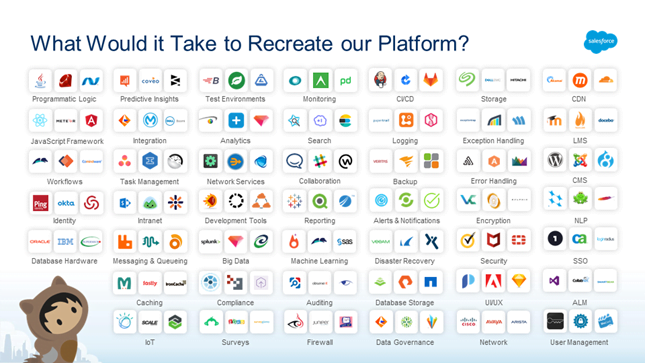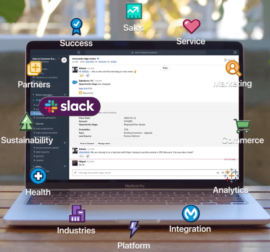 Contact us
Contact us Data Centralisation, Data Management and The Benefits of One Platform
Digital transformation is a term that is used by a large number of people, whether in the private or public sector. Until recently, most companies and institutions did not consider it a priority. The global pandemic was the impetus that showed us all how important an online presence is. You can read about the importance of digital transformation in our previous blog [1].
Although digital transformation is a broad topic, in this blog I’ll focus more on its sub-topics – data centralization, data governance, and the benefits of a single platform that have a significant impact on our businesses and their capabilities.
Data centralization
Having data in multiple places makes it difficult for teams to answer even the simplest questions. At the same time, divergent or incomplete data can cripple innovation and hinder a firm from being at the top of its field [2]. On the other hand, centralized data across your company can ensure that every team finds reliable and consistent data, which helps increase productivity, optimize collaboration, and improve decision-making capabilities. Centralization also allows employees to work more efficiently with data production and have more opportunities to analyze it [3].
Data centralization eliminates data silos by collecting all information in one accessible location. The existence of a single location reduces the time required to collect data, compare multiple sources, and eliminate the possibility of conflicting information [3]. Data governance and oversight are important to ensure accountability, control access and optimize security. Oversight can strengthen security against cyber-attacks, data theft, and potential internal problems by implementing storage, archiving, and backup policies. In addition, transparency and efficiency of work help the growth of the business [4].
Data management
Data management is the ongoing process of collecting, organizing, securing, and storing enterprise data that can be used for various business decisions. Data management solutions are becoming essential for navigating the vast amount of data that is being created and used by businesses at an increasing rate [5].
With effective data management, people in the company can find and access reliable data for their queries. The benefits of an efficient data management process are clarity, reliability, scalability, and security [5].
The visibility of corporate data can be increased by appropriate data management that helps employees find the right data quickly. It also allows the organization to be more productive and structured, whereby people can find the data and put in maximum effort [5].
Data governance reliability minimizes potential problems by setting processes and policies while instilling confidence in the data for use in company decision-making. Reliable and up-to-date data helps companies respond more effectively to customer needs and market changes [5].
Data governance can be used to efficiently scale data-related events and usage through repeatable processes that keep data and metadata up-to-date. Easy and repeatable processes help the company minimize the cost of duplication (i.e., doing the same research or queries repeatedly) [5].
Data management increases your company’s security against data loss, theft, and breaches. Strong data security is important to be able to get a backup in case the main source is unavailable. Security is even more important if your company holds any personal data that requires special management to comply with laws and regulations [5].
One platform and its benefits
Having the solution on one platform is a step in the direction mentioned earlier – having the data centralized and having the tools to manage the data properly. There are many options to choose from, often offered in a subscription-based model, and they can be easily upgraded or downgraded.
In most scenarios, the benefits of having an all-in-one platform outweigh the negatives (for most companies). These platforms offer more features and options within an integrated package. Compared to specialized systems, which often only offer specific features, all-in-one platforms provide a complete package with consolidated technological expertise [6].
The centralized platform has only one login and uses a single data source. It enhances security, helps in reporting, usage, and data sharing, and allows the management to have total control over the data [7].
One of the most important benefits is having a centralized cloud server that allows you to collect, receive and analyze data in a single source. Eliminating the need to switch between programs, servers, etc. saves you a lot of headaches and also increases the safety and speed of your work [7].
Another advantage of the all-in-one platform approach is the unification of everyone who works with it. They all have the same basic data to collaborate on, which helps when working in different offices or departments [8].
What cannot be overlooked are the reduced costs and increased revenues that can be delivered through a single platform and increased efficiency. You can safely save money by not needing multiple subscriptions from different vendors [7]. Companies can also reduce costs by implementing platform modules instead of a new system for its specific use [6].
As the business grows, there is a possibility that an unconnected system could hinder the ability to manage such a large amount of data. A holistic view of one platform will help you integrate new processes more easily and respond to anticipated and unanticipated changes [7]. There is no need to bring in additional administrators and train them on different software [8]. A consistent architecture helps IT professionals keep track of the changes they need to make. Similarly, it is easier for employees to switch activities and learn new features within a single platform because it is based on a familiar user interface [6].

While I’m trying to show you the benefits of centralized, well-managed data within a single platform, it all depends on your decision and what your company needs. The change will be good if there is a reason for it, I don’t recommend change for change’s sake. If you’re still undecided, try to get the bigger picture, and don’t be afraid to try and test products – many have free trials.
Sources:
- https://www.anodius.com/en/digital-transformation-begins-ends-customer/
- https://www.integrate.io/blog/top-5-reasons-to-centralize-data/
- https://www.datarails.com/centralization-for-bottom-line/
- https://ubsapp.com/data-centralization-5-ways-to-centralize-data/
- https://www.tableau.com/learn/articles/what-is-data-management
- https://www.dbta.com/Editorial/Trends-and-Applications/Advantages-of-Going-All-In-On-a–Platform-Versus-Diversifying-149032.aspx
- https://fleetroot.com/blog/7-benefits-of-using-a-single-unified-platform/
- https://www.placetechnology.com/a-one-platform-approach/
Vojtech Landa, CRM Consultant

